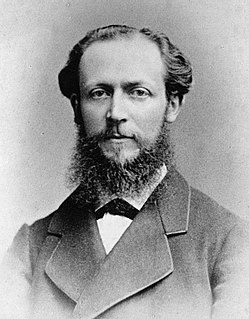Top 33 Hydrocarbons Quotes & Sayings
Explore popular Hydrocarbons quotes.
Last updated on April 14, 2025.
Do these fuels result always and necessarily in one way from the decomposition of a pre-existing organic substance? Is it thus with the hydrocarbons so frequently observed in volcanic eruptions and emanations, and to which M. Ch. Sainte-Claire Deville has called attention in recent years? Finally, must one assign a parralel origin to carbonaceous matter and to hydrocarbons contained in certain meteorites, and which appear to have an origin foreign to our planet? These are questions on which the opinion of many distinguished geologists does not as yet appear to be fixed.
The rich and powerful countries are trying to wreck as much as possible. You know, go off the cliff as soon as you can. Extract every drop of hydrocarbons off the ground and destroy the environment. At the opposite extreme are countries like Bolivia and Ecuador, indigenous people around the world, and first nations in Canada and tribal people in India, campesinos in Colombia... They're trying to save the commons.
If you really could take the CO2, when you burn hydrocarbons - coal, for example - if you could really capture the carbon and sequester it - they call it CCS - if the extra capital cost, energy cost, and storage costs over time didn't make it super expensive, then that's another path that you could go down.
Without Russia's contribution, prices would rise even more. Some members of the EU meet 90% of their demands for gas with the help of Russian hydrocarbons and have no complaints so far. Everybody is happy. Russia is a reliable partner and has never failed her partners in Europe, even in the hardest times of its economic development.
The Huygens images were everything our images from orbit were not. Instead of hazy, sinuous features that we could only guess were streams and drainage channels, here was incontrovertible evidence that at some point in Titan's history - and perhaps even now - there were flowing liquid hydrocarbons on the surface.
This treaty [Kyoto] is, in our opinion, based upon flawed ideas. Research data on climate change do not show that human use of hydrocarbons is harmful. To the contrary, there is good evidence that increased atmospheric carbon dioxide is environmentally helpful...agreement would have very negative effects upon the technology of nations throughout the world, especially those that are currently attempting to lift from poverty and provide opportunities to the over 4 billion people in technologically underdeveloped countries.
CO2 from air can replace petroleum: it can produce plastics and acetate, it can produce carbon fibers that replace metals and clean hydrocarbons, such as synthetic gasoline. We can use CO2 to desalinate water, enhance the production of vegetables and fruit in greenhouses, carbonate our beverages and produce biofertilizers that enhance the productivity of the soil without poisoning it. Carbon negative technology is absolutely needed now.
... the job [at the Manhattan Institute] gives me a platform where I can focus on the themes that I explored in both Gusher of Lies and Power Hungry: that the myths about "green" energy are largely just that, myths; that hydrocarbons are here to stay; and that if we are going to pursue the best "no regrets" policy with regard to energy, then we should be avidly promoting natural gas and nuclear energy.
One can, then, conceive the production, by purely mineral means, of all natural hydrocarbons. The intervention of heat, of water, and of alkaline metals - lastly, the tendency of hydrocarbons to unite together to form the more condensed material - suffice to account for the formation of these curious compounds. Moreover, this formation will be continuous because the reactions which started it are renewed incessantly.
We're teaming up with a major Hollywood studio, and we're making a movie called 'Copper.' It's set on Mars in the 24th century. By then we've got 27 billion people in the world, copper is the world's most valuable metal because everything runs on electricity, and there's no more burning of hydrocarbons.
Note even Jonathan Swift would dare to write a satire in which politicians argued that - in a world where species are vanishing and more than a billion people are barely able to afford to eat - it would somehow be good for the planet to clear rain-forests to grow palm oil, or give up food-crop land to grow biofuels, solely so that people could burn fuel derived from carbohydrate rather than hydrocarbons in their cars, thus driving up the price of food for the poor. Ludicrous is too weak a word for this heinous crime.
In 2005, before I was president, the state of Bolivia had only $300 million from hydrocarbons. Last year, 2007, the Bolivian state - after the nationalization, after changing the law - Bolivia received $1,930 million. For a small country with nearly 10 million inhabitants, this allows us to increase the national economy.
As I holed up in the City of Angels, I was also aware of a comforting feeling of anonymity. In the world's biggest third-class city I could pass unnoticed. I spoke the language. I was familiar with the currency. I could drink the water. I could almost breathe the air, late April air, compounded of interesting hydrocarbons.
I would like to draw attention to the fact that we have gone from pure trade [with China] in traditional goods [energy resources, such as hydrocarbons, oil and now natural gas, petrochemicals on the one hand and textiles and footwear on the other] to a whole new level of economic cooperation. For example, we are working together on space programmes. Moreover, we are developing and soon will begin the production of a heavy helicopter. We are now tracing the plan for the creation of a wide-body long-range aircraft.

























